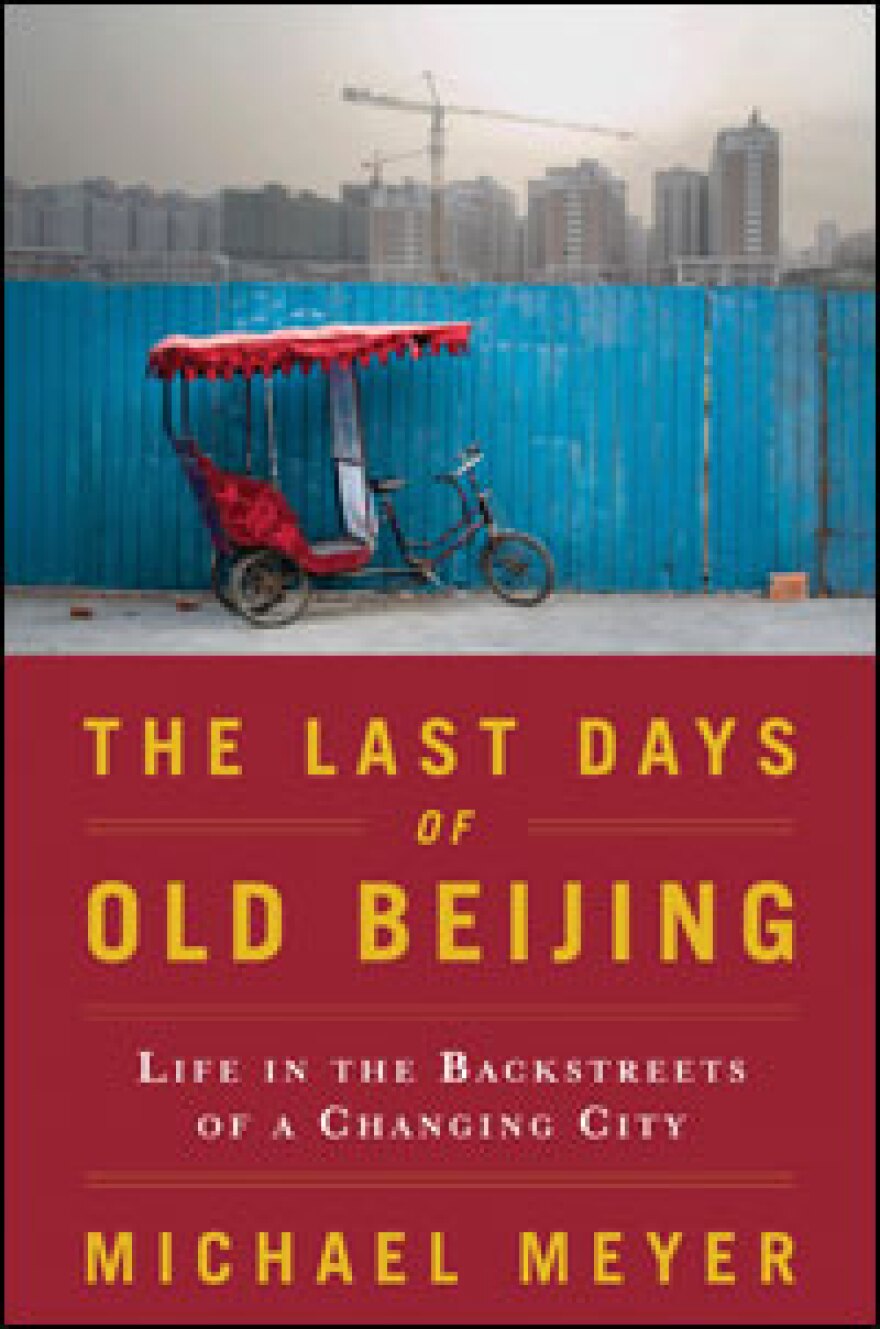
Nine years ago, I was standing outside an airport terminal in Beijing, holding my new baby daughter and saying a tearful goodbye to the Chinese woman who worked as a liaison for our adoption agency in China. In the midst of our farewells, this woman pointed over my shoulder and said, "Look!" There, on the green verge of the busy airport roadway, an old man was herding sheep. She smiled at the sight and said, "That is China."
If I'd been less preoccupied with my own seismic life changes back then, I might have paid more attention to how China's speedy efforts to modernize were pushing relics of traditional life to the sidelines — like that shepherd at the airport. As Michael Meyer tells us in his just-published substantive, smart book, The Last Days of Old Beijing, the slogan Chinese officials conjured up to headline their winning bid to host the Olympics was: "New Beijing, New Olympics." It's a slogan that's boded well for Wal-Marts and high-rise developments with wacky, Westernized names like Merlin Champagne Town and Dating Bright California, but China's massive makeover urge has spelled curtains for local food stalls, sidewalk barbers and the historic courtyard neighborhoods in Beijing known as hutongs.
Hutongs, Meyer tells readers, are single-story homes that are made out of wood and earthen brick and built around an open courtyard. Narrow lanes run outside the walls of the crowded hutongs, which for centuries composed most of the housing in Beijing.
Meyer knows the ins and outs of hutong history because he's one of the few Westerners to have ever lived in one. A resident of China for over 10 years, Meyer moved into one of the last remaining hutong neighborhoods in Beijing when he began teaching English at a local grammar school. As Meyer describes it, hutong living is not for loners (he recalls being greeted by male neighbors and students as he performed his morning squat at the community toilet); nor (during his residency) was it suited for those with a low panic threshold. Many mornings, Meyer's neighbors awakened to see the Chinese character for the word "raze" or "destroy" painted on their houses, which were regarded by the government as eyesores. As one architect tells Meyer, China doesn't harbor a fondness for ancient buildings because they're "seen as reminders of one pre-Liberation period: feudalism."
If Meyer uses the shaky perch of his hutong home to widely survey all manner of rapid-fire transformation in Beijing, Jen Lin-Liu uses a cleaver and chopsticks to probe China's changing character. In her entertaining and offbeat book, Serve The People, Lin-Liu, a young Chinese-American food writer living in Beijing, decides to enroll in a vocational cooking school in order to extend her reach beyond her closed friendship circle of Western expats and cosmopolitan Chinese. Lin-Liu's upper-middle-class parents back in the States are dismayed, but her odd move turns out to yield not only a rich inside-the-wok knowledge of Chinese cuisine, but also of the lives of everyone — from the migrant kitchen workers to the new generation of celebrity chefs — who make it. Through persistence — and her newfound knife-wielding skills — Lin-Liu goes on to get jobs at a local noodle stall and in the kitchen of a new, chi-chi restaurant. Gradually, in the culinary atmosphere of steam and sweat, some of her fellow cooks open up. She recalls how, during a private session of dumpling making, a teacher at the cooking school described life during the Cultural Revolution as well as the current inequities of China's health care. As Lin-Liu says of these unusually forthright conversations: "[They] brought out the mild paranoia that always floated just under the surface of life in authoritarian China, even if it was an authoritarian state in reform. It kept you from talking about anything sensitive. It kept you in your place."
But both of these insider books about China — as seen from home and cooking hearth — suggest that the sense of being "kept in one's place" seems, for better and worse, to be disappearing — almost as rapidly as the dumplings and smoked duck that Lin-Liu makes with friends to welcome in the New Year.
Copyright 2023 Fresh Air. To see more, visit Fresh Air.


